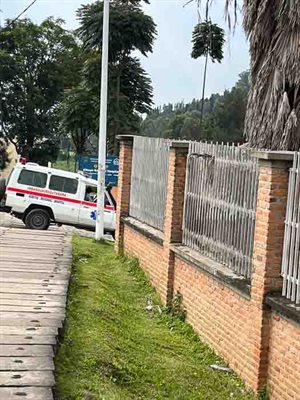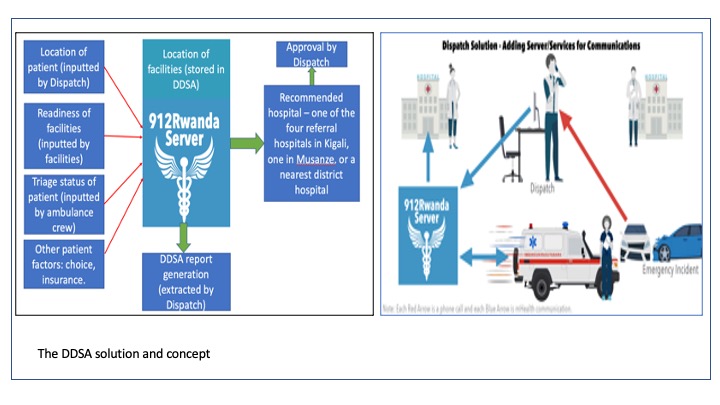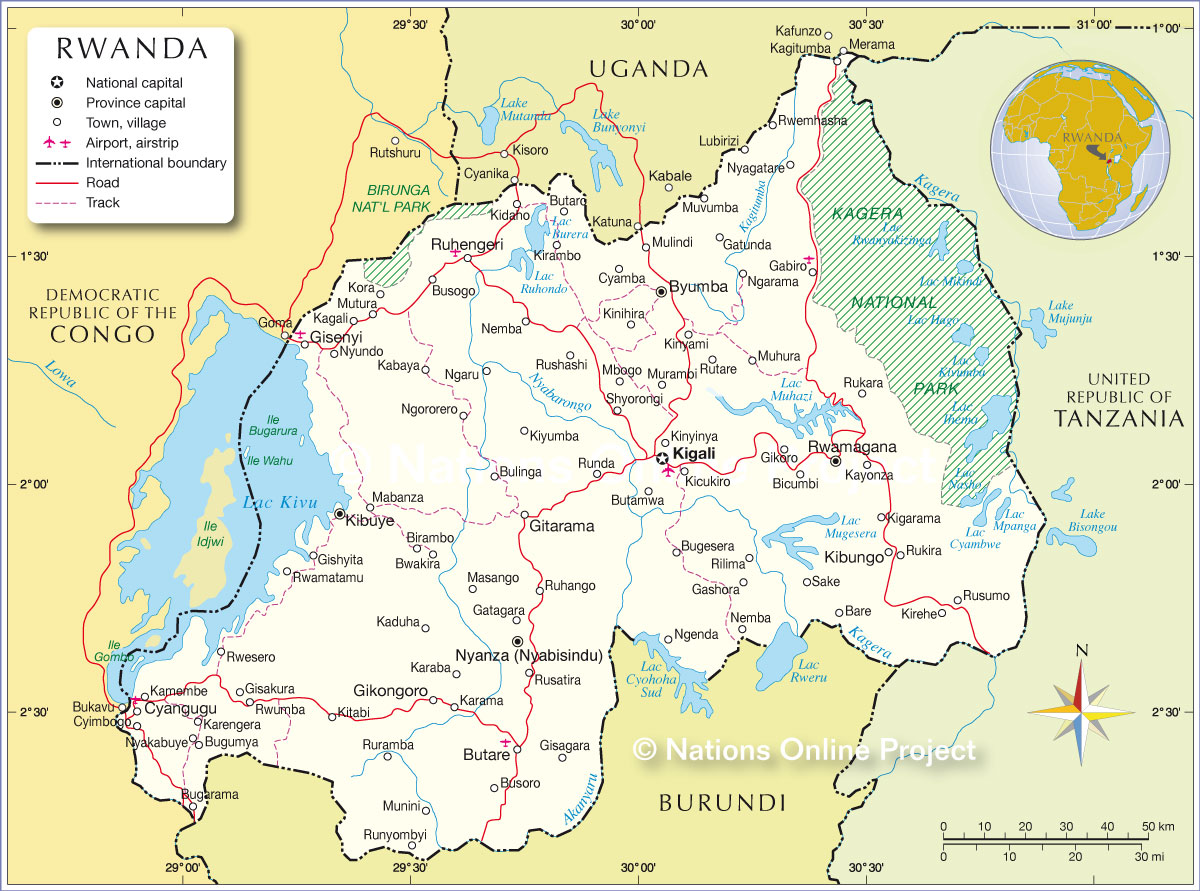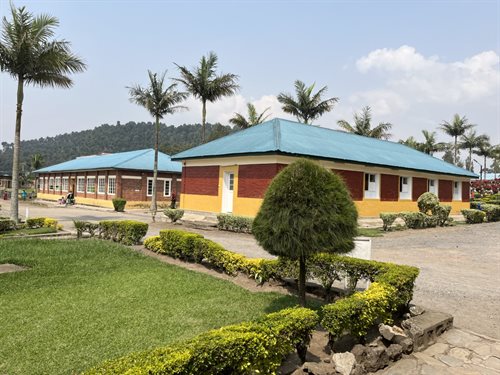
Our aim
We are developing and testing the effectiveness of a novel software communication system - Rwanda912 - to reduce time to transport of the injured patient to hospital and improve clinical care outcomes in two large areas of Rwanda (urban and rural). We are studying the facilitators and barriers to implementation.
Our research is delivered via a partnership between academics, Rwanda Ministry of Health, Service D’Aide Urgente (SAMU - the ambulance services), and RwandaBuild (the software developer). Our work is building upon that funded by a US NIH grant (number: 1R21TW011636-01A1), which develops the foundations for the software and a tool to improve accuracy of patient location.
Our software solution

Our objectives
To achieve our aim, we have multiple objectives:
1. Understand variables that need to be collected to inform patient care and/or be used in the Destination Decision Support Algorithm (the DDSA software).
2. Finalise the development of and test the DDSA.
3. Develop and test user interfaces for the software.
4. Develop training materials for use of the software and its user interfaces.
5. Conduct staff training and testing in a classroom setting.
6. Conduct field-trials using actor-patients to test use of Rwanda912 in the real world.
7. Roll out the intervention for use.
8. Test for effectiveness, cost, and implementation outcomes
Study Sites

Our study is carried out in two areas of Rwanda:
- Kigali district, in central Rwanda, which contains the country's capital.
- Musanze district in the Northern Province of Rwanda.
Hospital facilities where the intervention is active, and outcomes collected are as follows:
 Kigali
Kigali
- CHUK
- Kibagabaga District Hospital
- Nyarugenge District Hospital
- Muhima District Hospital
- Masaka District Hospital
- King Faisal Hospital
- Rwanda Military Hospital
Musanze
- Ruhengeri district hospital
How we manage your data
Personal data must be processed in accordance with specific principles set out in data protection law. These include the principle that personal data should be processed ‘lawfully, fairly and in a transparent manner’.
View the University's privacy policy
We also process your data in accordance with our Data Protection Policy.